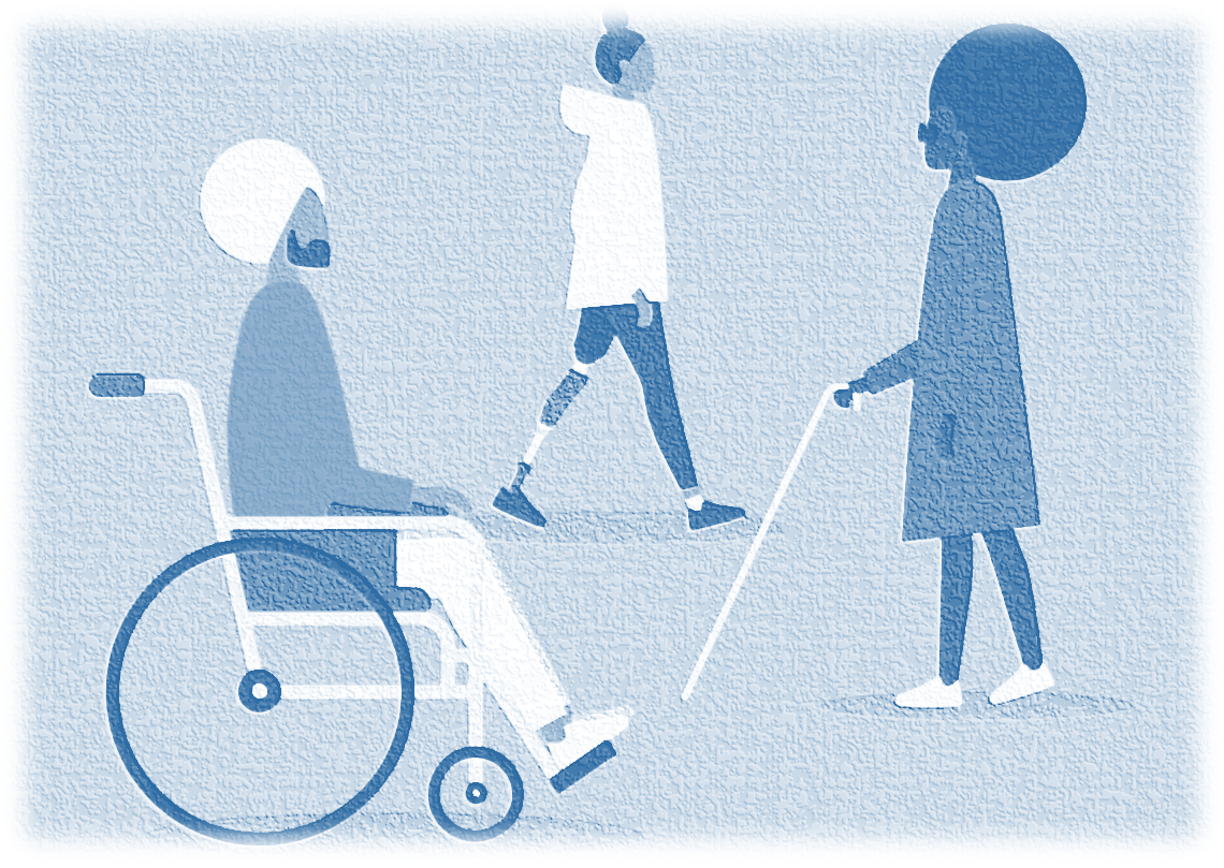Divrsity Dictionary: Ableism
6th Apr 2023

“Blind leading the blind”
“That’s so dumb”
“Falling on deaf ears”
“They are so OCD about cleaning”
“You’re acting crazy”
Sound familiar? Heard these kind of phrases before? Said them yourself? Unfortunately, often without even realising it, most people use words every day that are ableist. This isn't something that's necessarily an individual’s fault - we may have experienced previous generations use this kind of language and therefore have grown up thinking it’s appropriate and acceptable.
But it’s not - and we can all make conscious effort to avoid using these ableist slurs!
So, what is ableism?
Ableism is centered around the notion that being able-bodied is “normal” while other states of being (physical and/or mental) need to be “fixed” or altered. This can result in devaluing or discriminating against people with physical and/or mental disabilities.
For example, the expression "the blind leading the blind" would likely be used in reference to people who don't know what they're doing. Whilst that language may seem harmless in and of itself, the phrase actually enforces an untrue idea that blind people can't be in charge or take on leadership roles.
Institutionalised ableism is where those ableist beliefs manifest themselves in laws, policies, regulations, practices, and social and cultural norms eg buildings not have ramps and elevators, or no interpreters available. This can - and does - result in disparate treatment of people with disabilities (PwDs).
Impact > Intent
Even though people aren't usually talking specifically about disabled people when using ableist words & phrases, words can still be harmful and impact those communities in an unkind way. Remember that 80% of disabilities are not visible, so we may be using ableist slurs/phrases around people who have the same conditions we're indirectly mocking.
Course Correction
Language is powerful and we can all make an intentional effort to swap out ableist slurs, reducing the risk of causing harm or offence. As a selection -
INSTEAD OF “stupid, retarded, dumb”, SAY “ignorant, dense, irritating, frustrating”
INSTEAD OF “crazy, nuts, psycho”, SAY “outrageous, wild, bizarre”
INSTEAD OF “OCD”, SAY “particular” [adjective]
INSTEAD OF “lame”, SAY “boring, unexciting, dull”
By making these micro-interventions, this will help create more inclusive environments, thereby enabling & empowering people to thrive, contribute and innovate.
How Divrsity can help
The Divrsity platform enables organisations to collect data-backed insights as to how many of their employees self-identify as physically disabled and/or mentally neurodivergent (diagnosed or not diagnosed) but, perhaps more importantly, how those populations feel about certain organisational policies, processes and culture.
For example, one of our suggested Lenses asks to what extent can someone bring their whole authentic self to work when in the office - that data can be cut specifically by those who self-identify as physically and/or mentally disabled, giving that organisation a data-backed insight as to whether they are creating the equitable access & opportunities to all their employees, or just those who might be able-bodied / neurotypical.
No one is perfect, we all make mistakes and possess unconscious biases. That also doesn’t excuse or justify unkind or exclusive behaviours. Through good use of data, we can all contribute to driving positive change!
- Rochana Jackson
One of the reasons we built the Divrsity platform, was in-reaction to the one-dimensional way in which many employers look at Diversity: often focusing on Gender and/or Race, while ignoring important dimnsions such as Neurodiversity and/or Social Mobility. Read more about how Lenses help find opportunities to address Inclusion, Bias and Equity across all dimensions, or hit the button below to try it for yourself.
More Blog Articles
Or explore more in our Divrsity Dictionary series:
Equity vs Equality,
Intersectionality,
Caucasian,
Ableism, and
Transgender
Learn why we created Divrsity
Understand how Lenses help you create an inclusive company
Learn about another term: Intersectionality